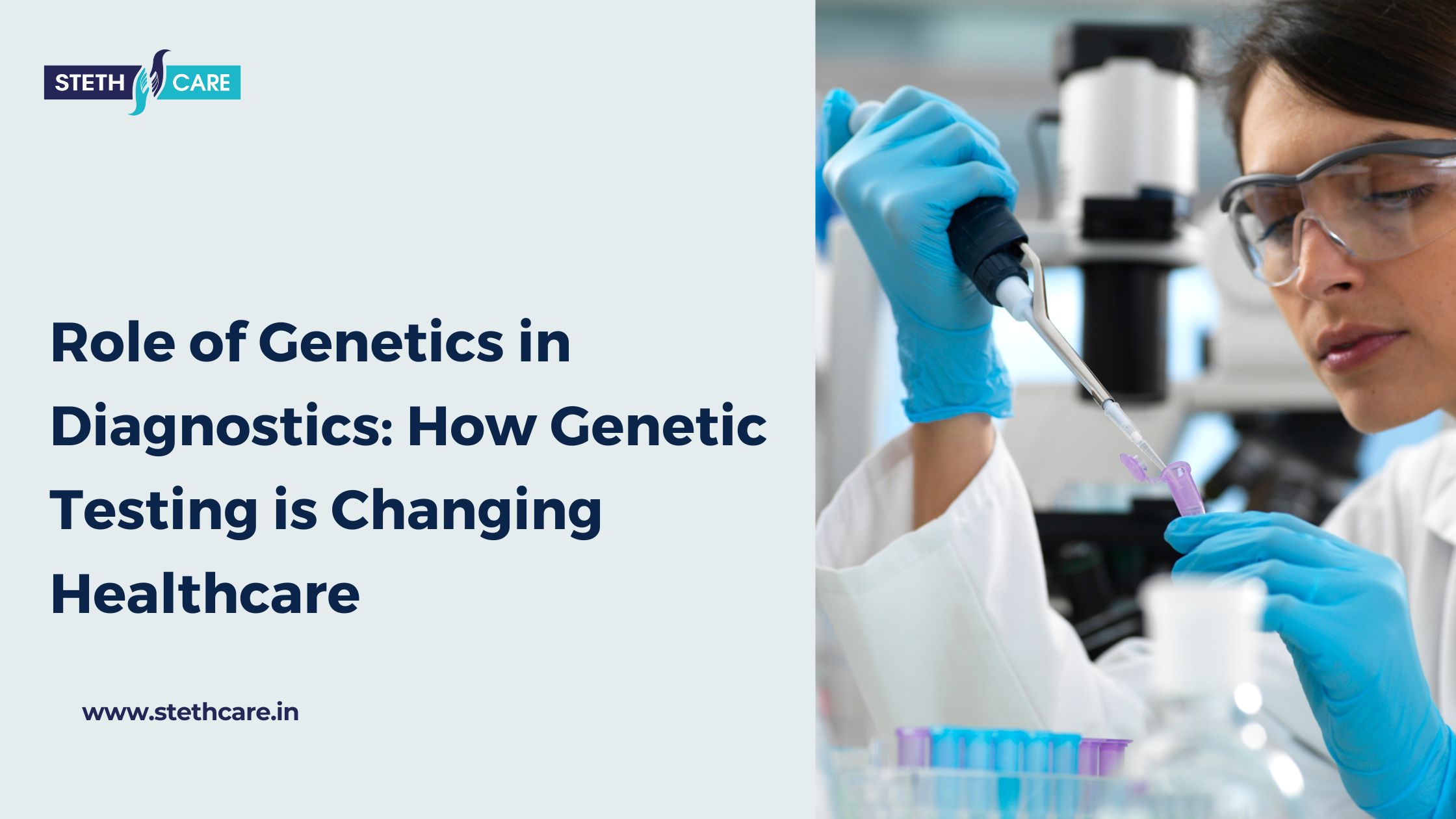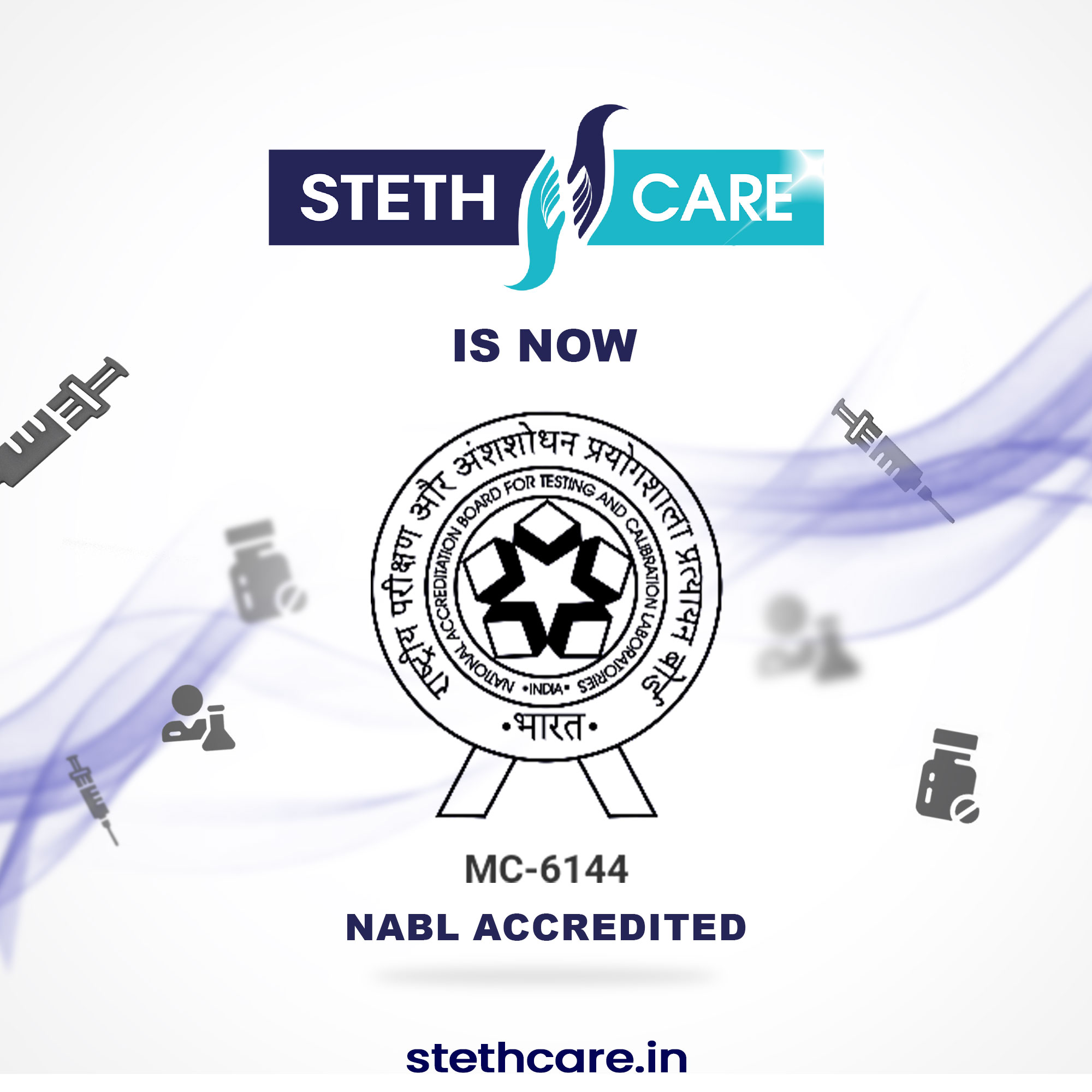
Unlocking Genetic Secrets:
Genetic Testing: As humans, we have always been fascinated by our origins and the mysteries of our existence. One of the most intriguing aspects of our existence is the role of genetics in shaping who we are. Genetics is the study of how genes are inherited and expressed in living organisms, and it has become an increasingly important area of study in the field of healthcare diagnostics.
In this article, we will explore the role of genetics in Healthcare Diagnostics, advancements in genetic testing technology, applications of this in healthcare, benefits of this, and the future of genetic testing in healthcare diagnostics.
Introduction to Genetics & Genetic testing:
Genetics is the study of how genes are inherited and expressed in living organisms. Genes are responsible for all the traits that make us who we are, from the color of our eyes to our susceptibility to certain diseases. This is the process of analyzing DNA to identify genetic variations that can cause diseases or predispose individuals to certain conditions. This has become an increasingly important tool in healthcare diagnostics, as it can help identify the underlying causes of diseases and inform treatment decisions.
The role of Genetics in Healthcare Diagnostics:
Genetics plays a crucial role in healthcare diagnostics, as it can provide valuable insights into the underlying causes of diseases. For example, genetic testing can help identify mutations in genes that are associated with certain types of cancer, such as BRCA1 and BRCA2 mutations in breast cancer. This information can help healthcare providers develop personalized treatment plans for patients, based on their individual genetic makeup.
This can also be used to diagnose genetic disorders, such as cystic fibrosis and sickle cell anemia. By analyzing an individual’s DNA, healthcare providers can identify mutations in genes that are responsible for these conditions. This information can help families make informed decisions about their reproductive options and can also inform treatment decisions for individuals with these conditions.
Advancements in Genetic Testing Technology:
Advancements in genetic testing technology have made it possible to analyze DNA more quickly and accurately than ever before. Next-generation sequencing (NGS) is one of the most exciting developments in this for technology. NGS is a method of DNA sequencing that allows researchers to analyze millions of DNA fragments in parallel, making it possible to sequence the entire human genome in just a few days.
Another exciting development in genetic testing technology is the use of CRISPR-Cas9 gene editing technology. CRISPR-Cas9 is a revolutionary tool that allows researchers to precisely edit genes in living organisms. This technology has the potential to revolutionize healthcare diagnostics, as it could be used to correct genetic mutations that cause diseases.
Applications of Genetic Testing in Healthcare:
It has a wide range of applications in healthcare, from diagnosing genetic disorders to identifying mutations that can cause cancer. Some of the most common applications of this in healthcare include:
- Diagnosing genetic disorders
- Screening for genetic mutations that can cause cancer
- Identifying mutations that can cause cardiovascular disease
- Identifying mutations that can cause neurological disorders
- Determining the risk of developing certain conditions, such as Alzheimer’s disease
Benefits of Genetic Testing in Healthcare:
There are many benefits to genetic testing in healthcare. One of the most significant benefits is the ability to diagnose genetic disorders and provide personalized treatment plans. This can also help identify individuals who are at risk of developing certain conditions, which can help them take steps to prevent or mitigate the effects of those conditions.
Another benefit of this is, the ability to identify genetic mutations that can cause cancer. By identifying these mutations early, healthcare providers can develop personalized treatment plans that are tailored to the individual’s genetic makeup. This can improve outcomes and reduce the risk of recurrence.
Future of Genetic Testing:
The future of this in healthcare diagnostics looks bright. Advancements in genetic testing technology are making it possible to sequence DNA more quickly and accurately than ever before, which will lead to more personalized treatment plans and improved outcomes for patients.
One of the most exciting developments in this is the use of liquid biopsies. Liquid biopsies are a non-invasive method of detecting genetic mutations that are associated with cancer. By analyzing a patient’s blood, healthcare providers can identify mutations that are associated with cancer and develop personalized treatment plans based on the patient’s individual genetic makeup.
How Genetic Testing is transforming healthcare diagnostics:
It is transforming healthcare diagnostics in many ways. By providing valuable insights into the underlying causes of diseases, it is helping healthcare providers develop personalized treatment plans that are tailored to the individual’s genetic makeup. It is also helping to identify individuals who are at risk of developing certain conditions, which can help them take steps to prevent or mitigate the effects of those conditions.
Another way that genetic testing is transforming healthcare diagnostics is by improving cancer treatment. By identifying mutations that are associated with cancer, healthcare providers can develop personalized treatment plans that are tailored to the individual’s genetic makeup. This can improve outcomes and reduce the risk of recurrence.
Conclusion:
The impact of genetic testing on the future of healthcare diagnostics, genetic testing is transforming healthcare diagnostics in many ways. Advancements in genetic testing technology are making it possible to analyze DNA more quickly and accurately than ever before, which will lead to more personalized treatment plans and improved outcomes for patients.
Genetic testing is also helping to identify individuals who are at risk of developing certain conditions, which can help them take steps to prevent or mitigate the effects of those conditions. The future of genetic testing in healthcare diagnostics looks bright, and we can expect to see many more exciting developments in the years to come.
